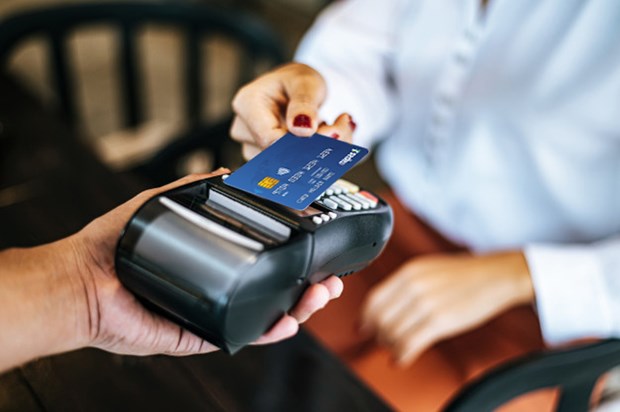The State Bank of Vietnam (SBV) this week issued a dispatch, noting that domestic automated teller machine (ATM) cards with magnetic strips will remain valid for normal use after December 31, 2021.

The State Bank of Vietnam (SBV) this week issued a dispatch, noting that domestic automated teller machine (ATM) cards with magnetic strips will remain valid for normal use after December 31, 2021.
The dispatch was issued after some banks have recently started sending notices to their customers about stopping supporting cards from ATMs to meet the deadline of the SBV’s Circular 19/2016 on the roadmap to convert from issuing magnetic strip cards to chip cards from next year.
Under the new dispatch, the SBV clarified that Circular 19/2016 makes no mention of a suspension of transactions using magnetic strip cards that remain valid.
December 31 this year is the deadline for changing to chip cards, not the date that magnetic strip cards will become invalid, the SBV noted, adding customers can continue to use magnetic strip ATM cards for transactions at ATMs, point-of-sale (POS) and bank counters, and for internet and mobile banking services after December 31 this year.
Under the new dispatch, the SBV asked card issuers and card payment organisations to ensure card holders’ transactions are carried out smoothly, safely and do not affect the interests of cardholders. They were also asked not to issue policies and regulations that go against the law on bank card operations.
In addition, they were told to launch media campaigns to inform their customers that magnetic stripe cards can still be used after December 31 this year.
However, under the new dispatch, the SBV also asked card issuers to encourage and support their customers to convert magnetic cards to chip cards to enhance security and to warn them of the risks if magnetic cards continue to be used.
There are two common ways to convert magnetic cards to chip cards.
In the first way, customers only need to bring valid citizen ID card or passport to the bank’s transaction point and request to convert from magnetic card to chip card.
In the second way, customers can access digital banking applications and mobile banking to apply for and receive cards at home or at the bank’s transaction points.
Or at some banks, the process is even more convenient. For example, at TPBank, customers can exchange magnetic cards for chip cards at LiveBank 24/7 and receive cards in just a few minutes.
In order to encourage customers to change magnetic strip cards to chip cards, most banks offered this service free of charge and the change is still free at some banks.
For example, at NamABank, the bank will completely convert magnetic strip cards to VIP cards for free from now until December 31, 2021. Similarly, Techcombank is also offering this activity free of charge.
According to experts, the conversion of magnetic strip cards to chip cards is beneficial for users, contributing to improving the security level, transaction speed, safety and ensuring the interests of customers.
Specifically, a magnetic card is a card containing a magnetic strip storing customer’s encrypted information. The data is permanently stored on the magnetic strip and is encrypted only once, so it easily leads to the risk of card information theft and transaction fraud.
Meanwhile, chip cards, which are also known as “smart cards”, have a microchip attached to the surface of the card, and this is the basic difference between chip cards and magnetic strip cards. For chip cards, transaction data includes data stored on the chip and the transaction password that changes with each transaction. Specifically, every time a chip card is used for payment, the chip will generate a unique transaction code and never repeat. In case the customer’s card is stolen from a certain store, the fake card will never work because the stolen transaction code will not be reused, the card will be rejected. — VNS
.





